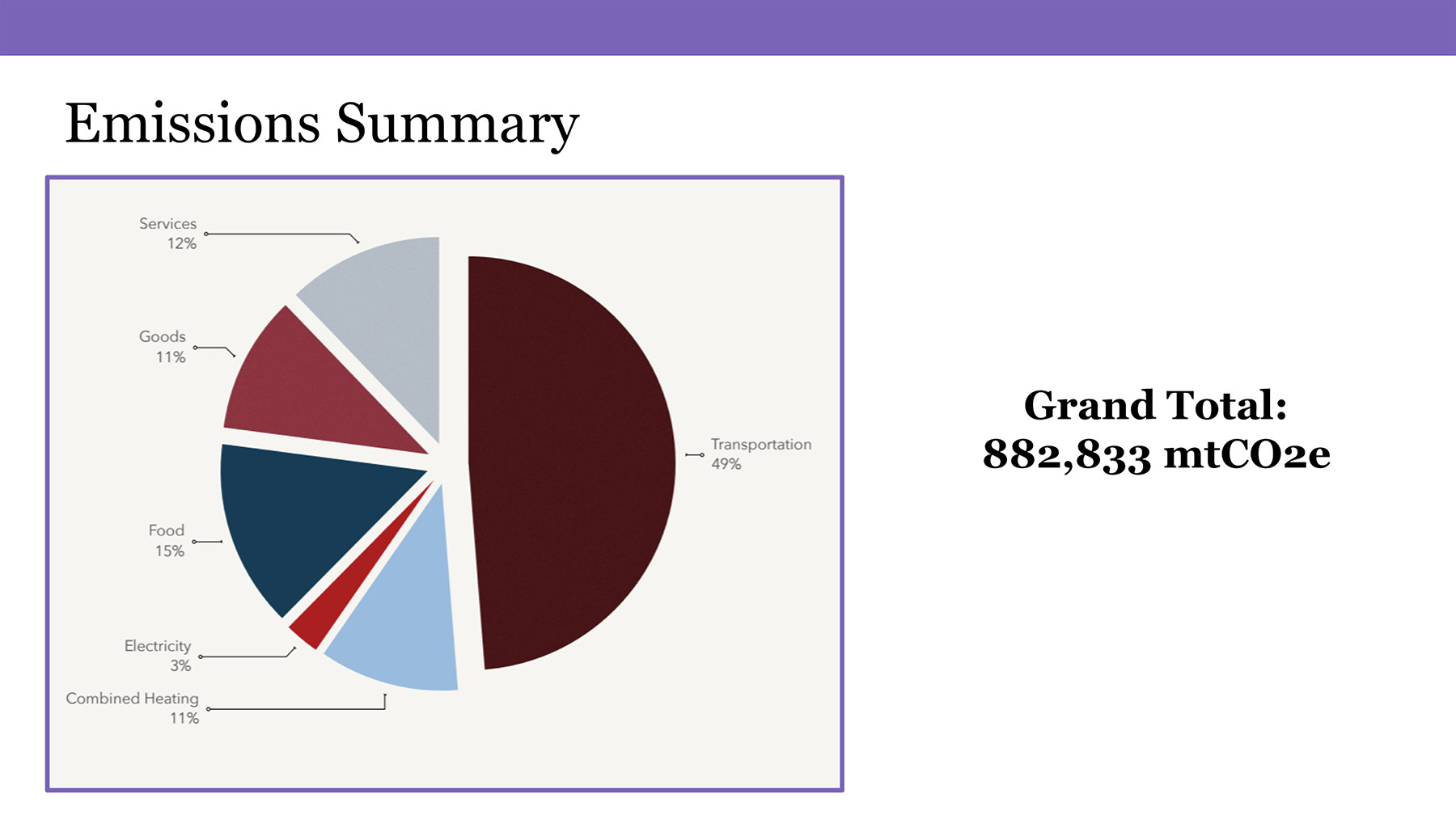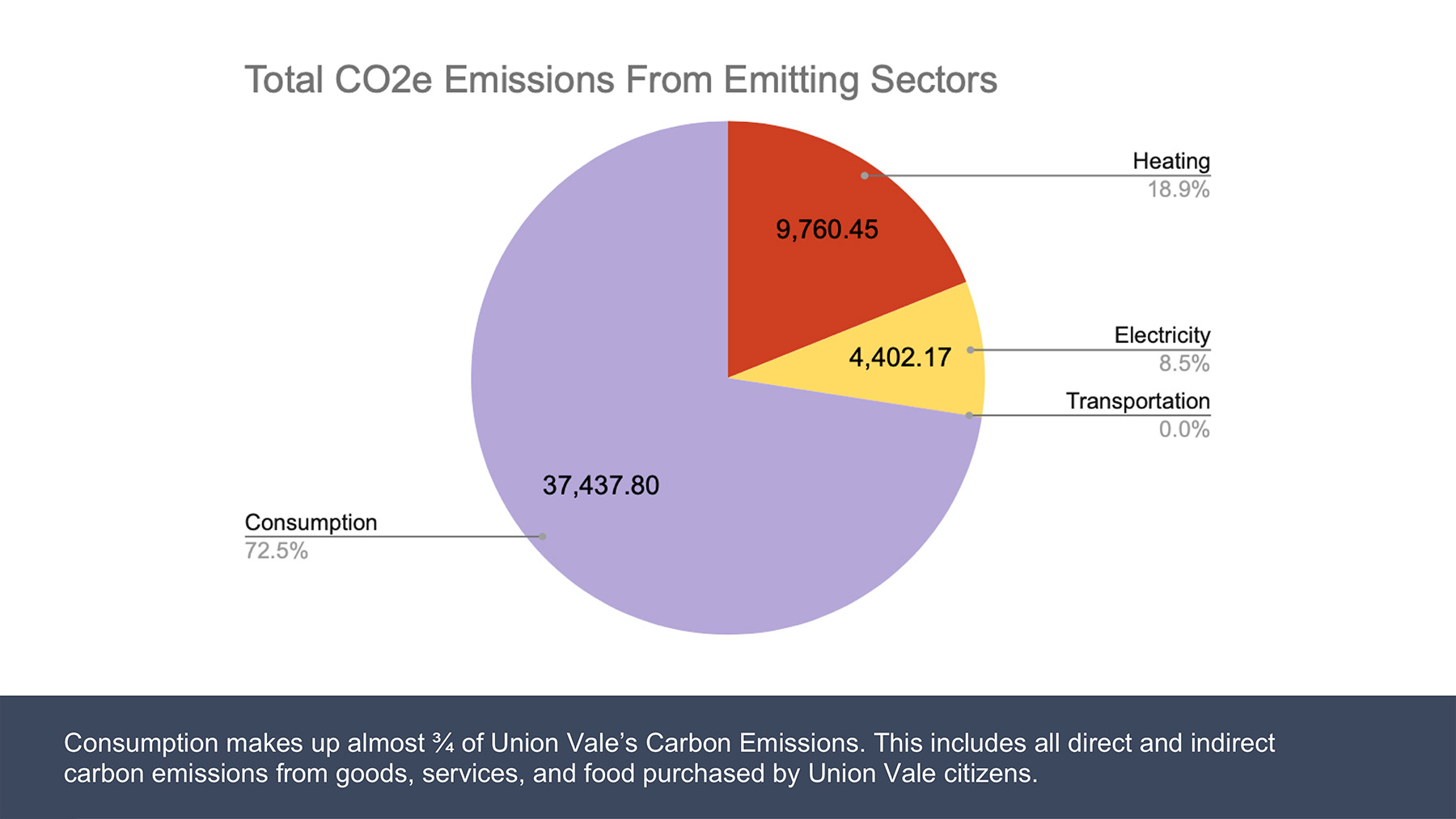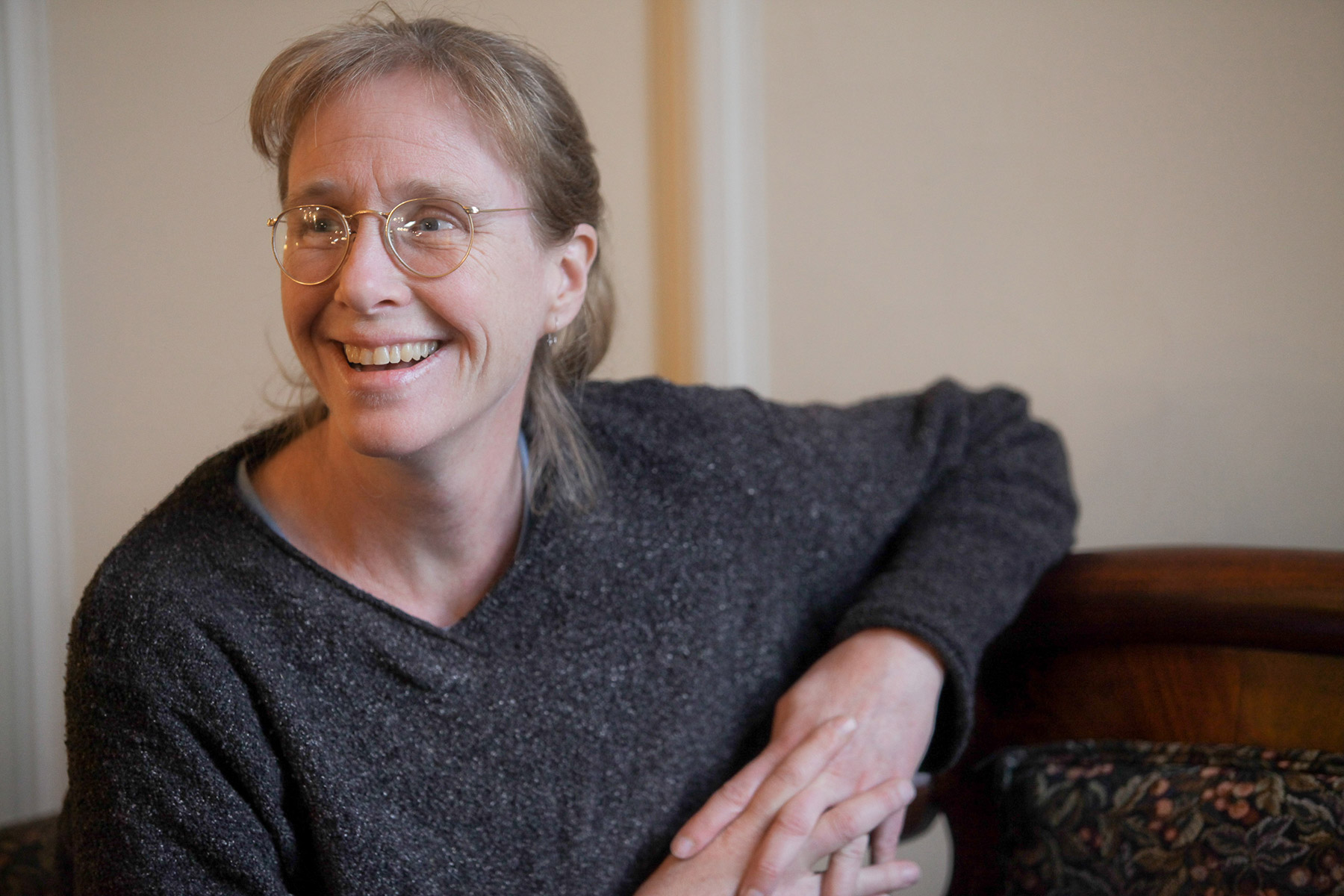Connecting the Classroom to Climate Action
Connecting the Classroom to Climate Action
When Jason Cooper ’23 enrolled in Geography Professor Mary Ann Cunningham’s introductory environmental studies class last fall, he expected the course to cover some of the basics of the topic along with some hands-on work in the lab.
Indeed, the course did cover such material. But later in the semester, Cooper and his classmates learned how to gather data on carbon emissions in five local municipalities and share what they had learned with officials in those communities. “I came to Vassar knowing I wanted to major in environmental studies,” Cooper said, “but I had no idea I’d be doing a project of this magnitude in my first class.”
By analyzing databases maintained by state and federal governments and other sources, the students were able to approximate the annual carbon emissions in several categories: motor vehicle traffic, residential and commercial heating and electricity use, as well as the energy used to grow food and create and transport other consumer products. The students also computed the amount of carbon dioxide that is being absorbed by vegetation in each community. By subtracting that figure from the total carbon emissions, they were able to provide each municipality with a net estimate of its annual carbon dioxide emissions.

Cooper partnered with two other students, Martin Burstein ’23 and Jonas Davis ’24, to analyze emissions in the Town of Poughkeepsie. Other members of the class compiled the information for the City of Poughkeepsie and the towns of Lloyd, Pleasant Valley, Union Vale, and Wappinger.
Providing this information wasn’t simply an academic exercise. The municipalities will use it to help them qualify for grants, technical assistance, and rebates on electric vehicles under New York’s Climate Smart Communities program. Susan Karnes Hecht, Chair of the Town of Poughkeepsie’s Climate Smart Communities Task Force, said the information provided by Cooper and his team “supplied us with important data that will help us work toward our (Climate Smart) certification.”
Cunningham said she created the course in part to help students who are concerned about the effects of climate change take some tangible action to combat it. “Our class was able to provide these municipalities with a preliminary, first-pass report and they will make use of the data in various ways,” she said. “The students were doing real work in the real world, and they were excited about that. They were connecting the classroom to real applications of climate action, and that’s the kind of thing Vassar students do.”
Michelle Gluck, an Environmental Resource Educator at the Dutchess County office of Cornell Cooperative Extension, said she had been monitoring the work being done in the Town of Poughkeepsie to address the effects of climate change. She said the data provided by the Vassar students would help town officials enhance and continue that work. “Even though it’s preliminary data, it sets the town up to get their wheels turning to give this issue attention,” Gluck said. “Now that the town has the information on carbon sequestration, for example, it sets them up to apply for a forestry program developed by the state Department of Environmental Conservation (DEC).”
Gluck noted that providing these municipalities with data on their carbon emissions is just one of many projects Vassar has undertaken to help local communities. “Vassar is an amazing resource,” she said. “Cornell Cooperative Extension is just one of many agencies that loves to see this type of collaboration, and we want to see more of it.”
Students who compiled the data said their assignments took on added importance because they were providing real help to real communities. “We got to meet with members of the town government to see how our information would be used, and that was empowering,” said Burstein, who worked on the Town of Poughkeepsie project with Cooper.
Louise Ambler ’23, who gathered data for the Town of Wappinger, agreed. “It was great to have the opportunity to contribute in a real and tangible way,” Ambler said. “Prior to taking this course I was concerned about climate change but it seemed so overwhelming. Being in this class made me feel I had done something that really made a difference, even if it was in a small way.”

Catherine Borthwick ’24 said the experience had broadened her perspective on the complexities involved in combating climate change. “Coming out of high school, I think I had a two-dimensional understanding of climate change,” Borthwick said. “What made this course compelling was being in touch with people in real communities who are concerned about it.”

One town official who assessed the students’ work said she was impressed not only with the data itself but with how they had presented it. “We live in a time when science is routinely discounted, and one of the reasons for that is that scientists haven’t presented their information clearly,” said Akiko Busch, Chair of the Union Vale Conservation Advisory Committee. “These Vassar students presented their data in an engaging way.”
Gluck, of Cornell Cooperative Extension, praised Cunningham for conceiving the project and helping the students bring it to fruition. “The work that Mary Ann does giving students the opportunity to work in the community is a powerful model,” she said. “It was great to see these students engaging in real conversations with these municipal officials and seeing those officials thanking them.”
